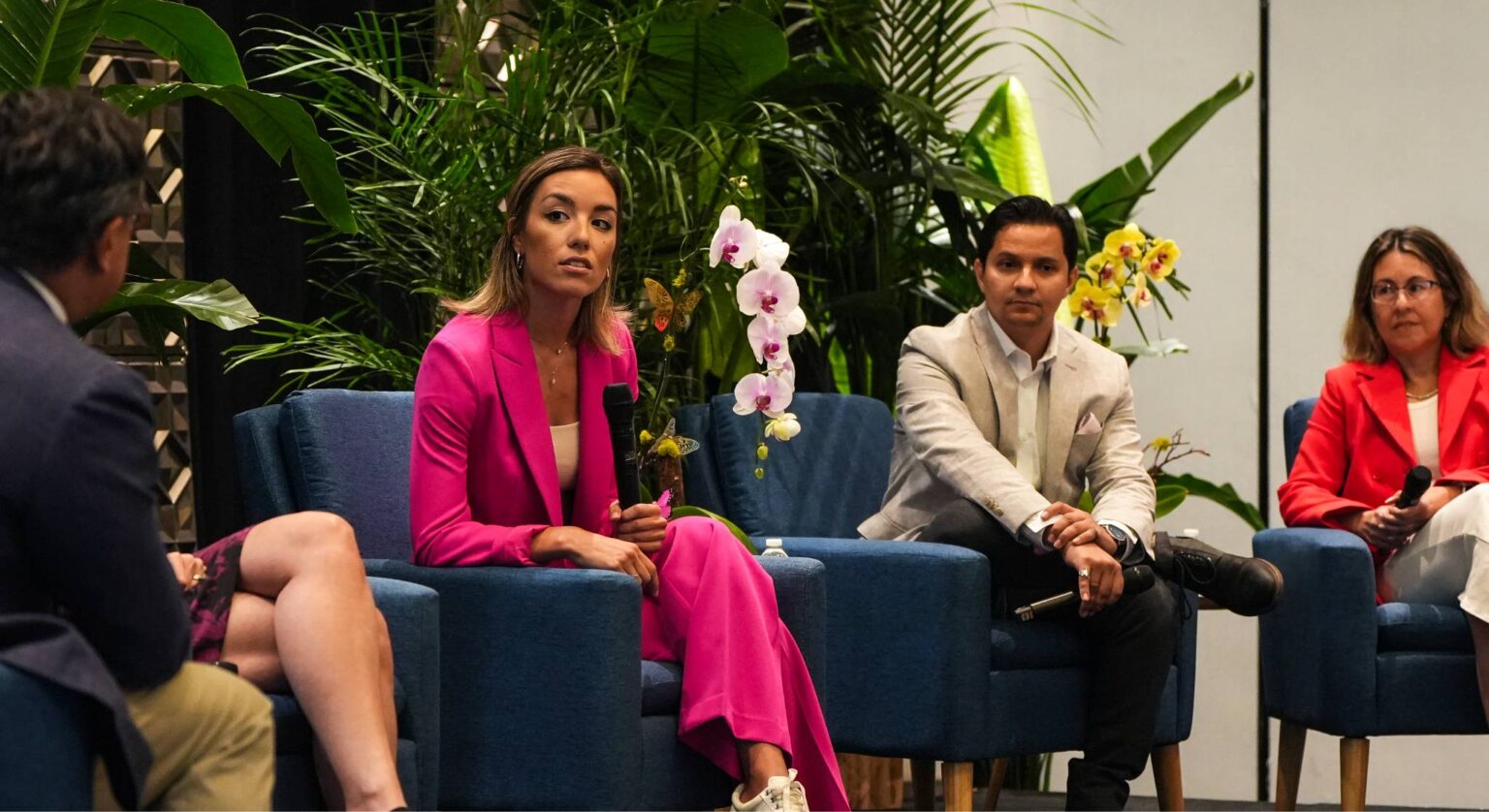
- Details
- By National Association of Hispanic Journalists
Guest Opinion.The presidential and vice presidential debates of 2024 feature only one journalist of color among six moderators, a failure of leadership that network news still has time to address.
Network news organizations have unprecedented scope to shape these debates, after both campaigns decided to bypass the Commission on Presidential Debates. Despite having talented, expert journalists of color on their staff, CNN, ABC and CBS have not yet used the opportunity to put forward moderators who fully reflect the nation the candidates are competing to represent.
[Editor's Note: This article was first published by the National Association of Hispanic Journalists and was shared to the Indigenous Journalists Association. Used with permission. All rights reserved.]
The moderators selected thus far are all excellent journalists, but having a variety of backgrounds represented results in higher-quality journalism. The perspectives and experiences of journalists of color can ensure they pose questions that resonate with broader audiences. Instead, network and cable news networks are implicitly signaling that when the stakes are highest, white journalists are most likely to get the call.
There is still time to remedy the situation. ABC News, which is hosting the next presidential debate on Sept. 10, and CBS News, which is hosting the VP candidates on Oct. 1, can each add an additional moderator, as networks did during primary debates. They can also structure the debates to ensure candidates get questions from diverse audience members, including local journalists.
If an additional debate is held in October, as the Harris campaign has said is possible, the network that hosts the debate should ensure the moderators reflect the diversity of the American people.
Latino, Black, Asian and Indigenous people represent close to 40% of the U.S. population; they will represent more than half of the U.S. population by 2050 or so. This year, 36 million Latinos are eligible to vote, representing close to 15% of eligible voters. There are more than 34 million eligible Black voters and 15 million eligible Asian American voters.
Journalists of color don’t just pose good questions, they model participation in democracy for millions of young people who see them on the screen, people whose votes the candidates are working to earn. Asians and Latinos are the fastest-growing ethnic groups in America.
Yet this election cycle, the news networks appear to be moving backward. In 2020, Asian American journalist Elaine Quijano moderated the vice presidential debate, after Amna Nawaz, who is Asian American and Muslim, moderated a Democratic presidential primary debate.
So far this year, ABC News’ Linsey Davis, who is Black, is the only non-white moderator out of the six selected. The CNN presidential debate on June 27 was hosted by Dana Bash and Jake Tapper. ABC News says Davis and David Muir will moderate the next presidential debate. CBS says the vice presidential debate will be moderated by Norah O’Donnell and Margaret Brennan.
About the Asian American Journalists Association
The Asian American Journalists Association is a nonprofit organization dedicated to advancing diversity in journalism and ensuring that Asian American and Pacific Islander voices are represented in the media. Founded in 1981, AAJA provides resources, training, and support for AAPI journalists, advocates for fair coverage of AAPI issues, and promotes the professional development of its members. Learn more at aaja.org or follow us on X @AAJA.
About the Indigenous Journalists Association
The Indigenous Journalists Association’s mission is centered on the idea that accurate and contextual reporting about Indigenous people and communities is necessary to overcome biases and stereotypes portrayed in popular and mainstream media. Expanding access to accurate news and information is essential to an informed citizenry and healthy democracy, across tribal, local, state and national levels. Through programs that support diversity and defend free press, IJA promotes accurate media coverage and encourages all newsrooms to maintain the highest ethical standards when reporting on Indigenous communities. Learn more at indigenousjournalists.org and follow us on X @IndigenousJA.
About the National Association of Hispanic Journalists
The National Association of Hispanic Journalists is an educational and charitable association dedicated to the recognition and professional advancement of Hispanic students, professionals, and educators in the field of journalism. NAHJ focuses heavily on advocacy, addressing injustices and political issues that affect Latino journalists throughout the country, while also supporting a growing network of members and chapters. For more information please visit NAHJ.org or follow us on X @NAHJ.
Help us defend tribal sovereignty.
At Native News Online, our mission is rooted in telling the stories that strengthen sovereignty and uplift Indigenous voices — not just at year’s end, but every single day.
Because of your generosity last year, we were able to keep our reporters on the ground in tribal communities, at national gatherings and in the halls of Congress — covering the issues that matter most to Indian Country: sovereignty, culture, education, health and economic opportunity.
That support sustained us through a tough year in 2025. Now, as we look to the year ahead, we need your help right now to ensure warrior journalism remains strong — reporting that defends tribal sovereignty, amplifies Native truth, and holds power accountable.
 The stakes couldn't be higher. Your support keeps Native voices heard, Native stories told and Native sovereignty defended.
The stakes couldn't be higher. Your support keeps Native voices heard, Native stories told and Native sovereignty defended.
Stand with Warrior Journalism today.
Levi Rickert (Potawatomi), Editor & Publisher
